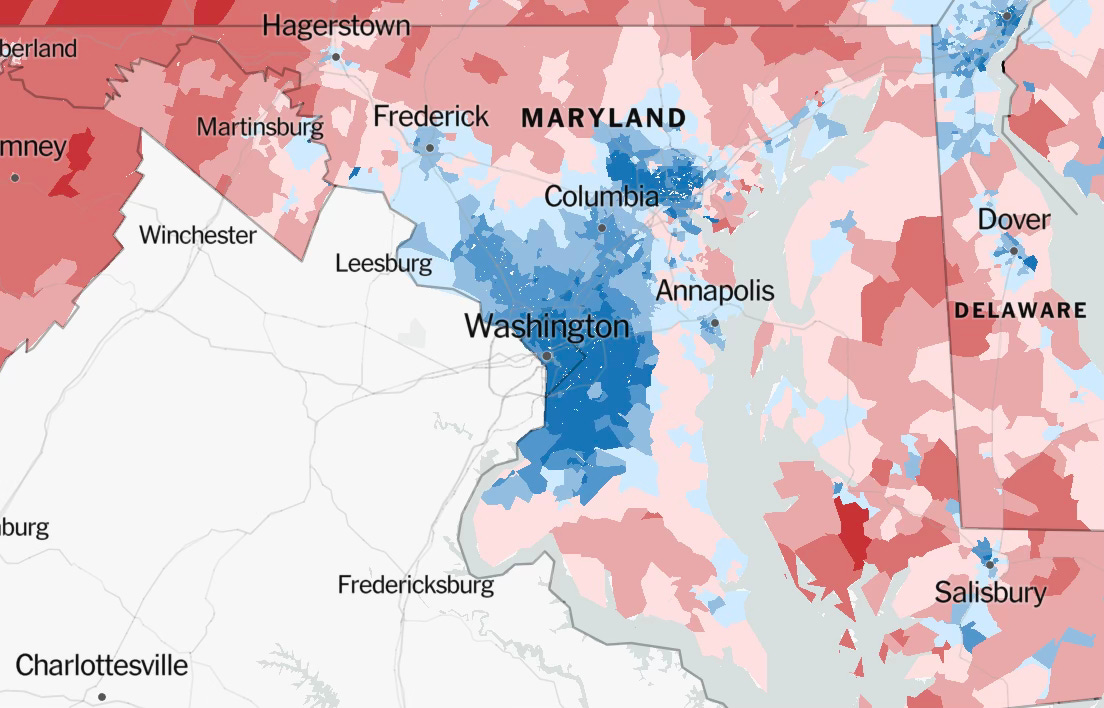Project 2025: Building a Conservative LinkedIn
Should a president be able to fire employees that don't agree with them?
Welcome to the second edition of The Preamble, my newsletter that will help you feel more confident in your knowledge about how government and politics work in the United States.
You’ve been asking for this for years. The Preamble is a place for more in-depth conversations on topics that are important to you. Unlike social media, the content will be archived and searchable, so you can come back to it. My goal is to give you history and context about things that matter, so you can think critically about them and make educated choices for yourself.
On weekdays, this newsletter will wing its way across the internet and land ~gently~ in your inbox. Feel free to forward it to someone who might be interested, and join the community to share your thoughts – I want to hear from you!
And now, on to the second installment of my research into and interviews about Project 2025.
We last left off with a discussion about the four promises Project 2025 makes – restoring the family, dismantling the administrative state, shoring up immigration and taking on China, and protecting God-given individual rights.
Did I read the nearly 1,000 page document about Project 2025 that the Heritage Foundation assembled? I did.
Did I also have in-depth phone conversations with a senior contributor and the director of Project 2025 himself? Also yes.
What I learned surprised me.
Don Devine, an octogenarian expert on the federal bureaucracy, admitted to me on the phone that he didn’t think anything in Project 2025 will—or even could—actually happen. As a senior contributor to Project 2025 and perhaps the conservative go-to in the nation on this topic, he told me that Democrats can’t make changes to the federal bureaucracy because of the unions that protect civil servants.
And Republicans can’t do it, he said, because they don’t understand how the system works.
Now, don’t get it twisted, he’s not saying Republicans are incapable of understanding how the federal bureaucracy operates. What he’s referring to is the fact that a sizable portion of the federal workforce lives in the Maryland and Virginia suburbs of Washington, DC, and those suburbs lean left politically.
Fewer people who lean right work for the federal government and engage with the system, so fewer understand how it works.
Which is one reason why Project 2025 has started an online academy made up of virtual classes people can take (you can earn a certificate at the end). The classes are aimed at helping Republicans learn about how the executive branch functions so they are better able to assist the next conservative president in carrying out their mission.
Paul Dans, the director of Project 2025, told me that identifying conservative federal employees is a top priority, because “95% of the DC suburbs voted for Biden.” (I fact checked this – it’s an exaggeration. It’s more like 79% voted for Biden. Here are the voting results from Montgomery County, MD, for example. But I take his point – 79% is an overwhelming electoral majority.)
Map from the New York Times
A little background for you: when a president takes office, there are about 4,000 positions they must fill with what are called political appointees. These are people, usually at the top levels of the federal bureaucracy, who serve at the pleasure of the president. It is generally assumed that if you are a political appointee and a new administration is elected, you’ll lose your job. That’s the nature of the work.
The remainder of the federal bureaucracy (more than two million workers) and tens of millions of people who work for federal contractors do not fall under this “pleasure of the president” category.
When a Democrat has been elected president, they generally have no trouble filling the 4,000 political appointee jobs with people who either live near DC or are willing to relocate.
But when Donald Trump was in office, he could not find 4,000 political appointees to fill the roles. His administration was only able to fill about 2,600 political appointee jobs, according to Dans. Some of the reason for this is that there were just not enough people that he wanted to hire. And some of it is that there were not enough people living in the DC area, or willing to relocate, who wanted to work for him.
So part of the goal of Project 2025 is to create a sort of conservative Linked In, called the Presidential Personnel Database, that will give Trump a larger group of political appointees from which to choose.
Project 2025 says, “With the right conservative policy recommendations and properly vetted and trained personnel to implement them, we will take back our government.”
Paul Dans told me that Project 2025 wants to build a “root stock” of people who aren’t “part of the [Washington, DC] ecosystem” and who are “ready to serve the conservative movement.”
No one really questions whether a president has the right to make political appointments – they obviously do. If you’re a conservative president, having 1400 open positions in your administration that you can’t fill? Yeah, that’s a problem that you should think about how to fix in advance.
But where alarm bells for many Americans start to go off is when Project 2025 begins talking, not just about political appointees, but about politicizing civil servants. These are the people who staff your local Social Security office. They evaluate grant applications. They ensure people aren’t killing endangered species.
Back in the day (my favorite historical time period), presidents just gave federal jobs to their buddies. Or they gave them to campaign contributors. Or to their daughter’s husband.
As the United States and its government grew, people began to realize that maybe just hiring your son-in-law wasn’t the best way to get things done. Maybe job seekers should be subjected to a competitive hiring process and the best person should get the position.
Maybe tax payers should expect minimum levels of competency from the people whose salaries they pay. It was a novel idea at the time.
The civil service has seen a number of iterations during the 20th century, in terms of the formal hiring and evaluation processes, but the idea has remained the same: most people who work for the federal government are not political appointees. They keep their jobs, generally speaking, no matter who is in office, because continuity of government is important. Imagine trying to run any organization where everyone is fired every four years – it would be woefully inefficient.
Project 2025 wants to change this. They say, “when it comes to ensuring that freedom can flourish, nothing is more important than deconstructing the centralized administrative state.”
“Experts” (in quotation marks) should not be making decisions, political appointees who answer to the president should be.
In order to accomplish this, Project 2025 wants to move some of the civil servant class, people who they say are unfireable, to the realm of serving at the pleasure of the president. As it stands now, the majority of civil servants must go through a set HR process before they can be fired for incompetence. Their proposal would eliminate that for certain classes of federal employees.
I pressed Project 2025 director Paul Dans on this topic. First, I asked him how many workers they’re proposing should be moved to the “pleasure of the president” category. These people are often referred to as Schedule F employees, which is their federal job type designation.
Some estimates say it’s around 50,000 workers. Dans didn’t like that number. He wouldn’t commit to even an approximation until they do a full assessment, but let’s say for the sake of argument that it’s reasonably accurate.
From the transcript:
Me: “Let's say it's 50,000 people. That may not be accurate. It may be more, it could be less, but let's just use it for the sake of argument. Let's say we get this full list of Schedule F employees. What would then happen under Project 2025's ideal scenario, to those Schedule F employees?”
Dans: “Well, nothing. It's all under President Trump's scenario. We're just here to provide some of the intellectual research and firepower as well as really line up people who could be ready to serve.”
I kept leaning into this, because what the document says, that nothing is more important than deconstructing the centralized administrative state, is different than what Dans was saying, that nothing would happen to these employees.
He went on: “This is really only felt by Republicans, and particularly in the Trump years, where there was a great obstinance [among the civil servants], almost to the point of completely undercutting the administration.”
Put more simply, he is saying that career civil servants didn’t obey Trump enough when he was in office, and in order to make sure that doesn’t happen again if Trump is reelected, we need to dismantle the current federal system and make it so more civil servants serve at the pleasure of the president. If they don’t listen, they can be fired.
Me: “What would you say to someone who hears this idea of putting non-political appointees under the complete control of the president and feels like that seems like a move towards authoritarian government? That it seems more dictatorial versus more democratic?”
Dans: “I’d say we already have authoritarianism. It’s called Joe Biden. He’s working to lock up his chief political opponent right now. Joe Biden is using his justice system as his kind of committee to reelect the president. The authoritarian right now is parked at 1600 Pennsylvania Avenue.”
He went on to tell me the view of Project 2025 is that placing more federal employees under the direct control of the president is more democratic, because the president was elected, whereas the civil servants hired through the regular federal hiring process were not.
I asked Don Devine about this too – wouldn’t making it so more people serve at the pleasure of the president allow the president to pack the highest levels of federal government with yes men? Wouldn’t it allow him (or her) to surround themselves with people who do their bidding instead of following the law?
Devine told me to get real. He said that people are not worried about some “hypothetical dictatorship” in the distant future, what they’re worried about, he said, is Trump.
“Don’t vote for Trump, then,” he said. “If you’re worried about a dictatorship, don’t vote for him.” I told him that people are afraid of another January 6th scenario. To that idea, he scoffed. “This guy [Trump] couldn’t start a revolution. Win or lose, he is going to spend the rest of his life going to court cases.”
Tayfun Coskun/Anadolu Agency/Getty Images
“If Jan 6 is the worst they have to deal with,” he continued, “they don’t have to worry about anything. The whole thing is blown up to scare people. There was no chance that that could lead to a takeover of the government. Zero. I just don’t understand how people think that way. It was just not anywhere near the truth. A bunch of goofballs got up there, and blame it all on Trump.”
A lot of people disagree with that, I told him. People died. More than 140 law enforcement officers were assaulted.
Devine thought for a moment, and said: “The way to stop a dictatorship is to get the power out from the government.” Unlike Dans, Devine doesn’t think Biden is an authoritarian. There’s a very real chance he is reelected, he admits. “It won’t be the end of the world if Biden wins,” he said. “He won’t be able to do much.”
Interesting, right? And a microcosm of how differently even people who are playing on the same team view the world. In one, Joe Biden is already the leader of an authoritarian government and Trump is the one who can snatch democracy back from the jowls of death. And in the other, Joe Biden can’t do much to change the federal bureaucracy, it won’t be the end of the world if he wins, and Donald Trump couldn’t start a revolution if he tried. Which of these viewpoints will be the one carrying Project 2025 – and the Republican party – forward into this election?
More on that tomorrow.
Be sure to check out today’s podcast episode – it’s an interview with the director of the FDR Presidential Library, Paul Sparrow.
We talked about his new book, Awakening the Spirit of America: FDR's War of Words With Charles Lindbergh―and the Battle to Save Democracy.
Be ready to listen to this episode and wonder if we’re talking about the 1930s or 2024.
The above book link is an Amazon affiliate link. I donate 100% of the proceeds from my Amazon commissions to 501c3 organizations like World Central Kitchen. To date, I have donated about $20,000 just from doing this. It doesn’t cost you any extra to use my affiliate link.








I find the quote, “we will take back our government” quite chilling. Take back from whom? Who falls into “our”? It nods toward the idea we hear more and more of lately that some Americans are more American than other Americans. I can’t think of an historical example where that kind of thinking led to something positive.
Nothing about these conversations makes me feel any less certain that the goal of Project 2025 is to install Donald Trump as a dictator. What’s even more terrifying is their gaslighting. We watched January 6th and no amount of their lying will make that less real than it is.
I am beyond angry that we as an electorate are powerless to fix this mess.